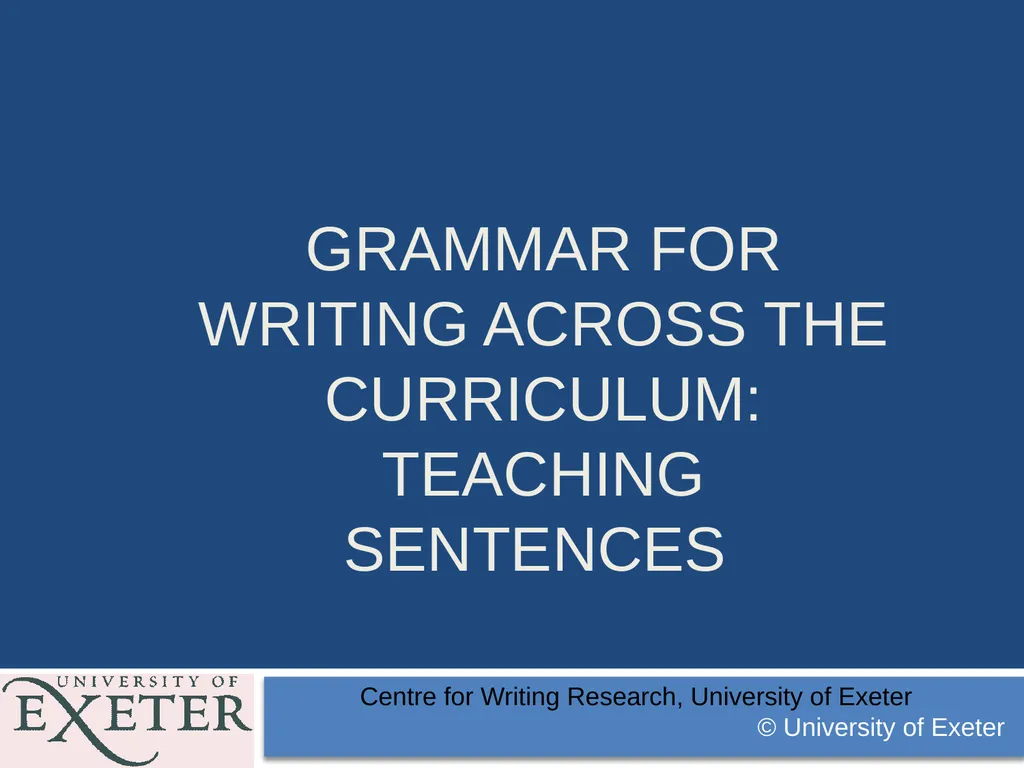
Author : mitsue-stanley | Published Date : 2025-08-06
Description: GRAMMAR FOR WRITING ACROSS THE CURRICULUM: TEACHING SENTENCES Centre for Writing Research, University of Exeter University of Exeter Key Messages Writing is key to success in all subjects Academic writing to explain and analyse isDownload Presentation The PPT/PDF document "" is the property of its rightful owner. Permission is granted to download and print the materials on this website for personal, non-commercial use only, and to display it on your personal computer provided you do not modify the materials and that you retain all copyright notices contained in the materials. By downloading content from our website, you accept the terms of this agreement.
Here is the link to download the presentation.
"GRAMMAR FOR WRITING ACROSS THE CURRICULUM:"The content belongs to its owner. You may download and print it for personal use, without modification, and keep all copyright notices. By downloading, you agree to these terms.











![[EBOOK] - The Grammar Teacher\'s Activity-a-Day: 180 Ready-to-Use Lessons to Teac...](https://thumbs.docslides.com/901318/ebook-the-grammar-teacher-s-activity-a-day-180-ready-to-use-lessons-to-teach-grammar-and-usage.jpg)
![[READ] - English for Everyone: English Grammar Practice Book: An ESL Beginner Gra...](https://thumbs.docslides.com/903097/read-english-for-everyone-english-grammar-practice-book-an-esl-beginner-grammar-workbook-for-adults.jpg)
